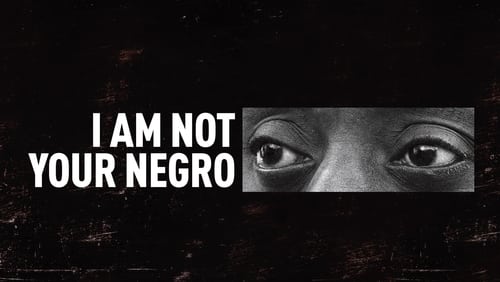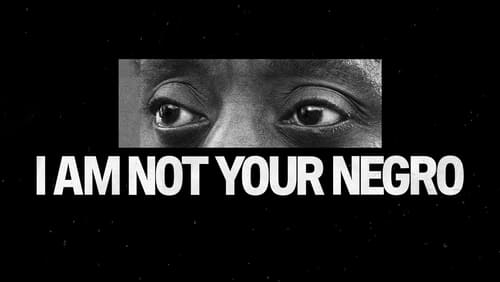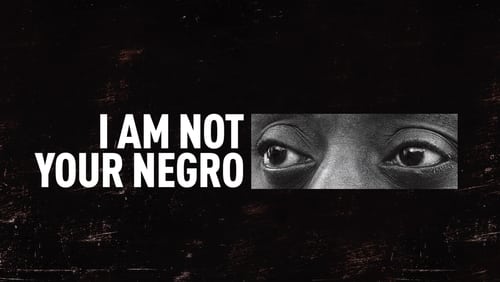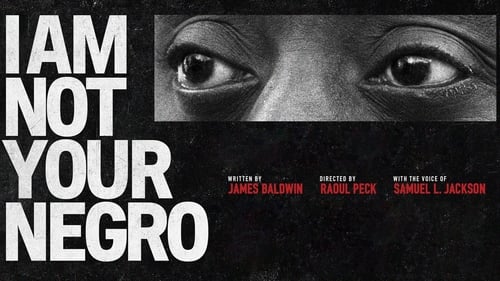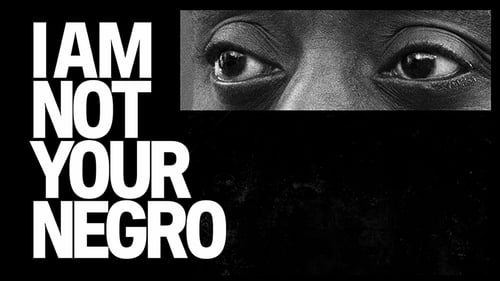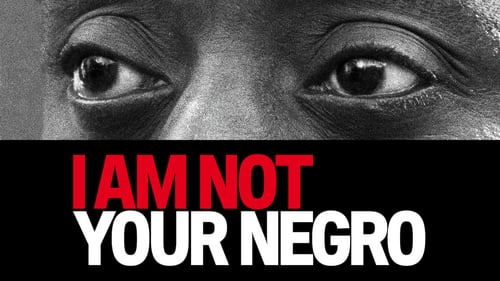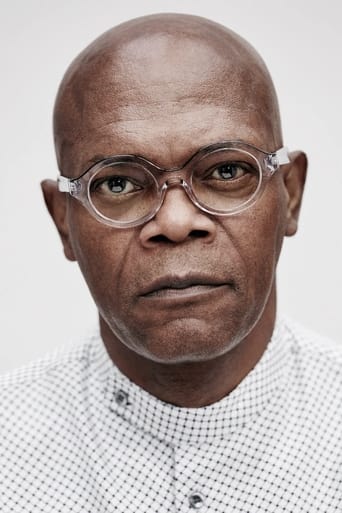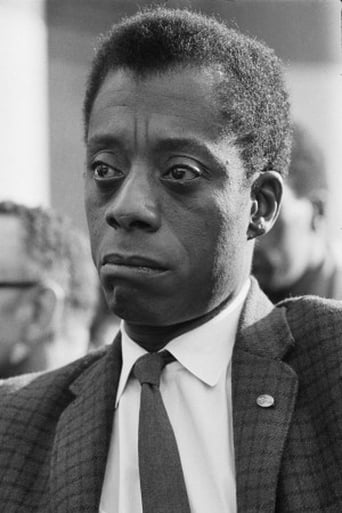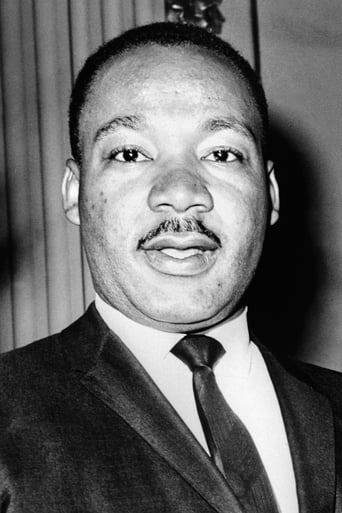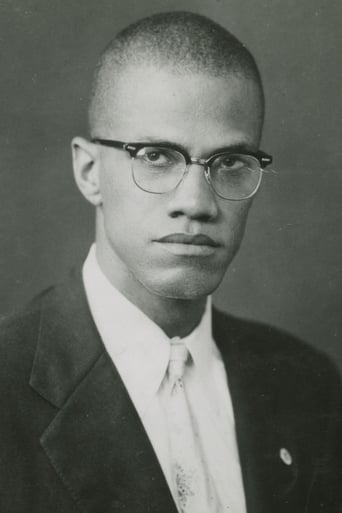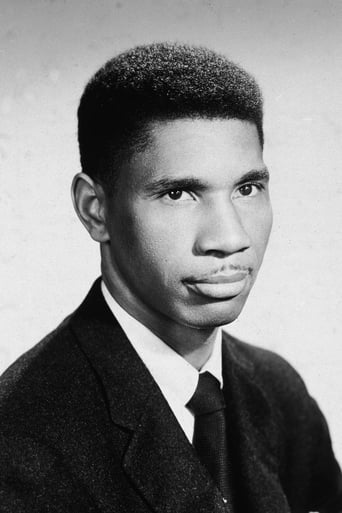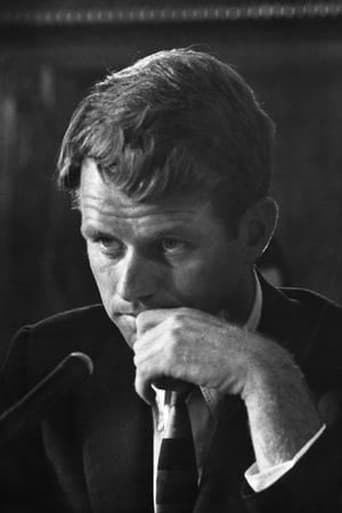Stevecorp
Don't listen to the negative reviews
Grimossfer
Clever and entertaining enough to recommend even to members of the 1%
Stephanie
There is, somehow, an interesting story here, as well as some good acting. There are also some good scenes
Jemima
It's a movie as timely as it is provocative and amazingly, for much of its running time, it is weirdly funny.
Henk Sonnemans
I watched a person full of hate for about ten minutes and then I switch of my tv. I think that says enough.
Will Jeffery
A documentary that adapts James Baldwin's unfinished book 'Remember This House' recounting the lives and assassinations of Martin Luther King Jnr., Malcolm X and Medgar Evers. Not much to say other than this one of the best documentaries I've seen in a long time. Powerful material delivered like a story with the aid of archival footage, photographs, newsreels, Hollywood film clips, debates from the civil right era all to suggest Baldwin's writings. Nominated for the Best Documentary Academy Award, 'I Am Not Your Negro' is a rare cinematic achievement about an issue that is still so relevant today. You can't take your eyes off it nor your mind.
Abdirashid Diriye Kalmoy
The nominee for the best documentary feature at the 89th academy awards, I Am Not Your Negro is already considered a cinematic spectacle in its own essence by a variety of critics. The poignant and cogent documentary is realistically scathing the contemporary and prevalent disenfranchisement of African-Americans with a retrospective narration of civil rights era's horrendous and dehumanizing conditions that prevailed less than a generation ago.The principle figure in the documentary is the celebrated African- American essaying and novelist James Baldwin (1924-1987). It is based on his unfinished manuscript of the novel Remember This House in which he documented his personal views on the civil right movement, the precarious conditions of African-Americans and his engagements with civil rights activists like Medgar Evers(1925- 1963), Malcolm X(1925-1965) and Martin Luther King Jr (1929-1968) who were all assassinated for their stance and activism on equality, civil liberty and the emancipation of African-Americans from a system that oriented its legitimacy and policies on slavery and Jim crow heritage.The documentary director is the Haitian filmmaker Raoul Peck. We remember him from his existentially nuanced works, like the documentary Lumumba (2000) which is about the Congolese freedom fighter and first prime minister of independent Congo Patrice Lumumba(1925-1961) who also demised at the hands of US and Belgium intelligence operatives. It is narrated by Samuel L. Jackson with a sonorous voice that arrests the viewers attention and initiates an irresistible compassionate empathy for the 'lived experiences' of African-Americans. Raoul Peck draws much of the narrated script from letters and notes written by James Baldwin during the 1960s and 1970s and wove video clips melodiously with them, and the result is a sublime and original documentary film .I Am Not Your Negro, is a necessary intervention at a time when the global world is marred by racism, xenophobia and a deleterious identity politics. The resurgence of nationalism based on negativism (Brexit) and the mushrooming of the likes of Donald Trump and 'strongmen' across Europe discloses howhumanity failed to transcend an excruciating 'modern' racism and the failure of 'project Humanity' – multiculturalism, Tolerance and plurality. The documentary exposes the facile in modernity's claimed progress when it comes to issues of race and 'humanity' of black people in general.Raoul Peck, reminds us of this gawking reality that the conditions of African-Americans has not changed at all – think of the Black Lives Matter and Baltimore uprisings. It is hard to avowedly enunciate the difference between what James Baldwin and his ilk faced and the contemporary challenges faced by African-Americans and Black people across the world. We exist in a continued adversary and detrimental conditions - in terms of economic, psychology and identity - that our parents experienced not so long ago. The issues James Baldwin begrudged and grappled with is what this millennial generation articulates and ventures to 'face and solve' with all its intricacies. Hamid Dabashi, the Iranian philosopher praised Raoul Peck metaphorically in a recent Aljazeera article that he '' has poured Baldwin's beautifully aging wine in a masterfully crafted new bottle''.This year we have witnessed and exulted at the monumental towering of films by Black actors and directors with Moonlight, Fences and The Birth of A Nation taking center stage in cinema. The subject of their themes has been peculiar to African-American lives and its historiography as it meandered through the turbulent waves of the American dream. James Baldwin emphatically comprehended and discerned the African-American pariah figure and her conditions throughout his oeuvres and director Raoul Peck clothed it with a superficial cinematic poignancy and authenticity. I Am Not Your Negro lacks any blemish and I posit confidently that it's the documentary-film of this year 2017. Highly recommended for all.
alexdeleonfilm
I'm not your Negro" directed by Haitian Raoul Peck, is based on the unfinished writing of James Baldwin on the lives and deaths of three prominent figures of the Civil Rights Movement of the sixties, Martin Luther King, Malcolm X, and Medgar Evers, all, three of whom were assassinated before the reached the age of forty. Before the main title we see a clip of Baldwin on the Dick Cavett talk show, which will be reprised several,times during the film. Baldwin is himself the person most seen throughout, the star of the film, so to speak -- but others include Malcolm X, Luther King and Evers, plus Robert Kennedy who was also assassinated within the same time frame, and, of course, Sidney Poitier and Harry Belafonte. A long sequence from Stanley Kramer's "The Defiant Ones" shows Tony Curtis and Poitier on the lam but bound together by prison chains, forced to cooperate in order to survive even though they hate each other -- the best clip in Peck's film. Many other clips were I thought far less irrelevant to director Peck's intended massaging -- basically, it seems, intended to make white viewers feel guilty. We see Baldwin addressing an enthusiastic crowd at Cambridge in England and a number of other similar scenes spaced out throughout the picture as he becomes an international celebrity. There is much graphic footage of violent police brutality against black demonstrators with Baldwin's commentary heard over --and hateful white demonstrations against "niggers" right up to the present day -- Ferguson, etc., but randomly interspersed. The overall tone of the film is quite bleak delivering the message that it is up to white America to change their indifferent attitude on race relations if they are ever to improve to the point where negroes are totally accepted and integrated fully into the society, while not holding out much hope that this will ever be achieved. The only slight ray of Hope is a flash of Black president Obama and his wife, after we see Baldwin wryly saying that, within another forty years a black man might become president "If we behave ourselves" -- oddly enough it was just exactly forty years later that Obama was elected. Peck makes extensive use of film clips from Hollywood movies (Dori Day, etc.) meant to demonstrate the complacency of White America and their lack of concern for the plight of black people. John Wayne is shown in an extended clip from Stagecoach shooting down Indians right and left. References to the Wounded Knee massacre and other atrocities against native Americans are used to imply that the Negroes who were raised as children to root for John Wayne are actually victims just like the Indians and should have been identifying with the Indians not the cowboys. The picture is divided into sections with chapter like headings on a Horizontally split black and white screen as a visual metaphor for the black white racial divide. In between poetic visual sequences not really related to the main line of the narration are inserted for some kind of effect which I found pointless and distracting filler. J. Edgar Hoover, notorious head of the FBI puts Baldwin on a dangerous persons list to be watched and underlines his homosexuality because of his outspoken anti-Racism. However, Baldwin was not nearly as radical as some of his contemporaries. He disavows the Black Panthers on the grounds that their ideology which demonizes all white people, is simply untrue. Not all white people are devils. He also refuses to identify with the NAACP movement on the grounds that it tends to promote divisive class distinctions in the black community. in sum, Baldwin was an independent thinker whose thought never strayed from demanding that the white community as a whole must take responsibility for their racism and deal with it honestly on their own. He lived most if his adult life as an ex-pat in France. While this film gives a detailed summary of racism and anti-racism in the sixties my feeling was that it is rather heavy handed and incoherent in a way that Baldwin himself might not have been very happy with. Moreover, rather than make me feel a sense of responsibility as a white person, it mainly served to make me realize how basically alien American black culture is to me. All in all I was disappointed in the film although I came to it with very high expectations. At the five PM screening at the Music Hall cinema in Beverly Hills there were only five viewers besides myself. The film is not packing them in. Seems to me Europeans are more interested in American race relations than well off white Americans. It was far better attended and positively reviewed at the Berlin film festival.










